Removal Procedure
Tools Required
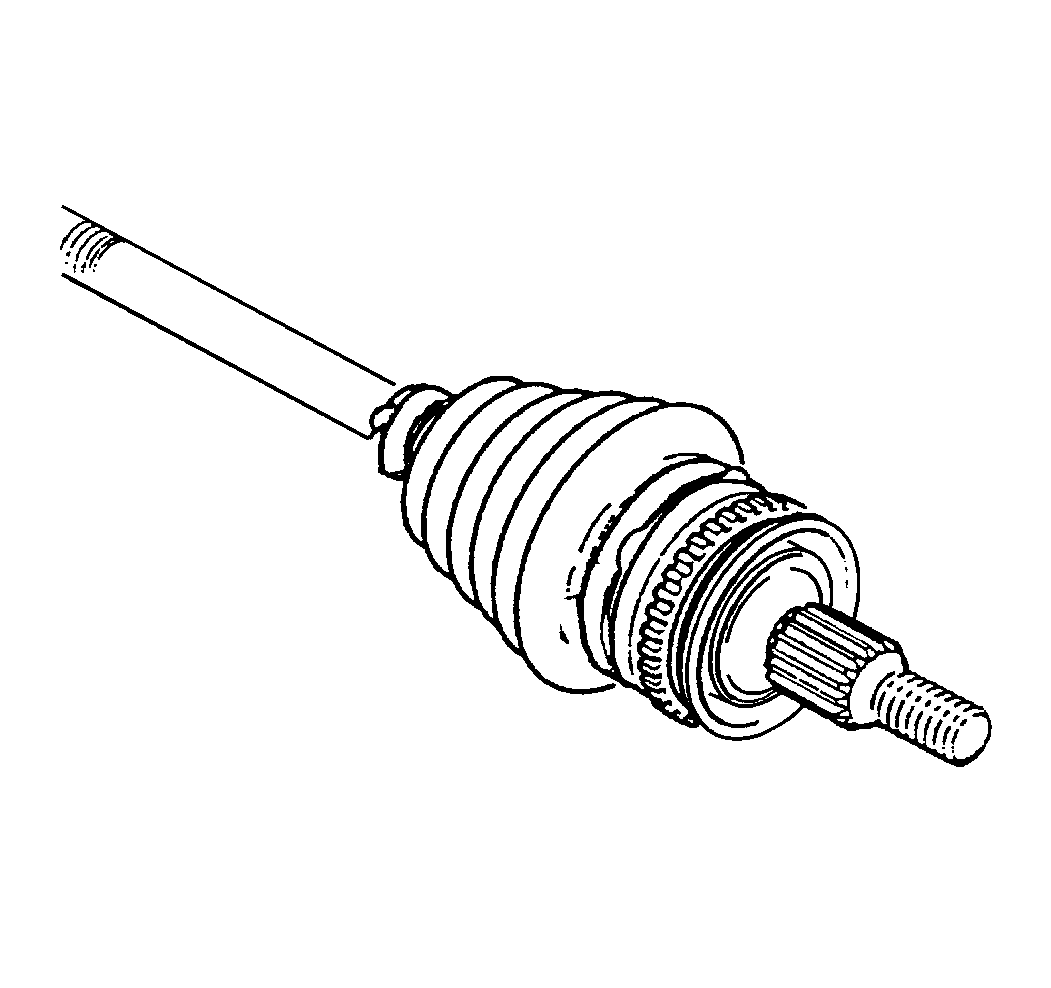
Notice: When servicing the hub assembly, be careful not to damage the ABS components.
If any of the ABS components are damaged, the ABS system may not function
properly and the damaged component will need to be replaced.
The ABS exciter ring is shown.
Important: Prevent the boots (seals) from contacting the other components in order
to prevent damage to the boots (seals).
- Remove the wheel cover or hub cap. Refer to
Aluminum Wheel Hub Cap Replacement
in Tires and Wheels.
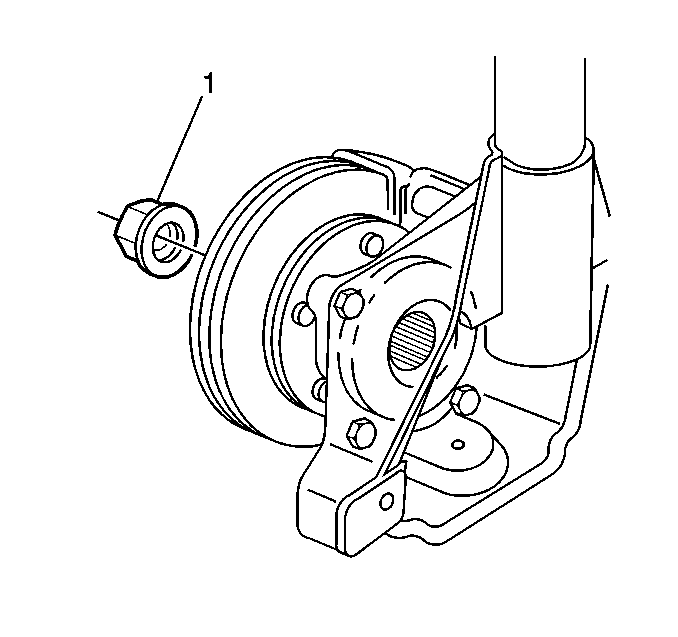
- Remove the front wheel
drive shaft nut (1).
- Raise and suitably support the vehicle. Refer to
Lifting and Jacking the Vehicle
in General Information.
- Remove the tire and the wheel. Refer to
Tire and Wheel Removal and Installation
in Tires
and Wheels.
- Remove the brake caliper/bracket and rotor. Refer to
Front Brake Caliper Replacement
and
Front Brake Rotor Replacement
in Disc Brakes.
- Disconnect the front wheel speed sensor connector and remove the
front wheel drive shaft bearing. Refer to
Front Wheel Drive Shaft Bearing Replacement
in Front Suspension.
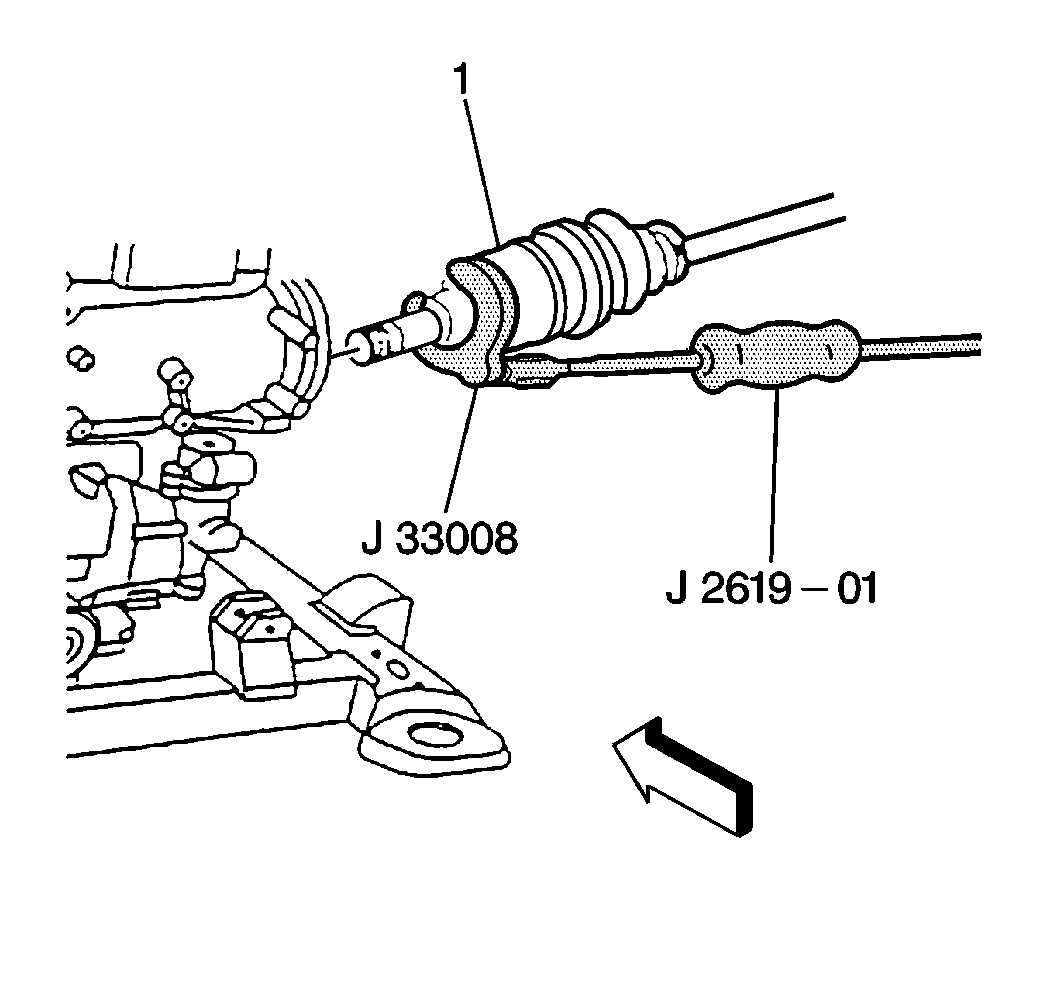
Caution: Do not attempt to move vehicle with drive axle(s) removed from wheel
bearing. Wheel(s) could fall off, dropping vehicle to the ground and causing
personal injury or damage to the vehicle.
- Use the J 33008
,
the J 29794
and the J 2619-01
in order to separate
the right side front wheel drive axle (1) from the transaxle.
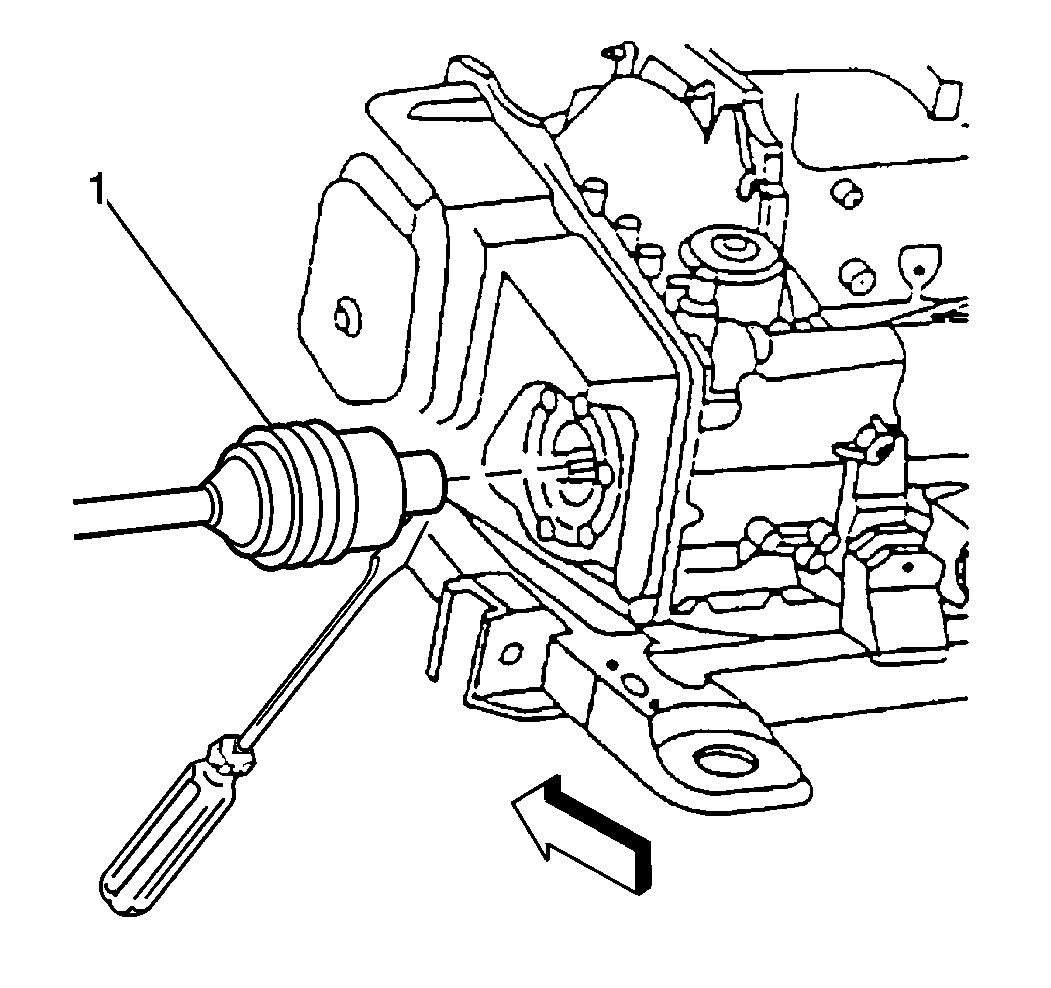
- Use the following steps
in order to separate the left side front wheel drive axle shaft (1) from the
transaxle:
| • | Use the frame for leverage |
| • | Place a flat-bladed tool into the groove provided on the front
wheel drive shaft tri-pot joint. Use the flat-bladed tool in order to separate
the left side front wheel drive axle shaft (1) from the transaxle. |
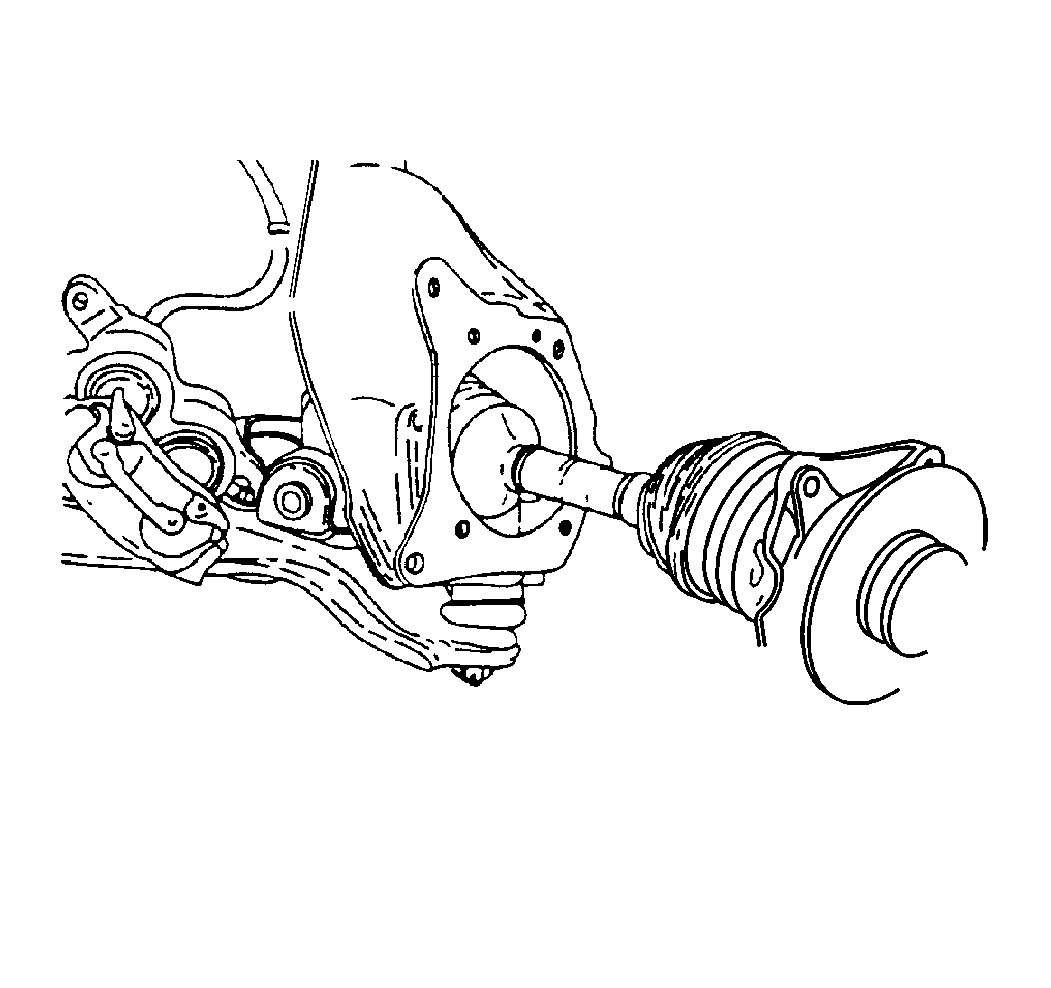
- Remove the front wheel
drive shaft bearing through the steering knuckle.
Installation Procedure

Important: Prevent the boots (seals) from contacting the other components in order
to prevent damage to the seals (boots).
- Install the front wheel drive shaft bearing through the steering knuckle
and into the transaxle.
- Loosely secure the wheel drive shaft bearing bolts at the steering
knuckle.
- Seat the axle into the transaxle.
| • | Use a flat-bladed tool. Place the tool into the groove provided
on the front wheel drive shaft tri-pot joint. |
| • | Pry against the frame for leverage. |
- Perform the following steps to verify that the front wheel drive
shaft retaining ring is properly seated.
| 4.1. | Use a screwdriver to tap on the inner groove. |
| 4.2. | Grasp the inner housing and pull the inner housing outboard. Do
not pull on the front wheel drive axle shaft. |
When the front wheel drive shaft retaining ring is properly seated,
the front wheel drive axle will remain in place.
- Attach the front wheel speed sensor connector and install the
front wheel drive shaft bearing. Refer to
Front Wheel Drive Shaft Bearing Replacement
in Front Suspension.

Important: Always use a new front wheel drive shaft nut.
- Install a new front wheel drive shaft nut (1).
- Install the wheel and the tire. Refer to
Tire and Wheel Removal and Installation
in Tires
and Wheels.
- Install the brake caliper/bracket and rotor. Refer to
Front Brake Caliper Replacement
and
Front Brake Rotor Replacement
in Disc
Brakes.
- Lower the vehicle.
Notice: Use the correct fastener in the correct location. Replacement fasteners
must be the correct part number for that application. Fasteners requiring
replacement or fasteners requiring the use of thread locking compound or sealant
are identified in the service procedure. Do not use paints, lubricants, or
corrosion inhibitors on fasteners or fastener joint surfaces unless specified.
These coatings affect fastener torque and joint clamping force and may damage
the fastener. Use the correct tightening sequence and specifications when
installing fasteners in order to avoid damage to parts and systems.
- Tighten the front wheel drive shaft nut (1).
Tighten
Tighten the front wheel drive shaft nut to 215 N·m (159 lb ft).
- Install the wheel cover or hub cap. Refer to
Aluminum Wheel Hub Cap Replacement
in Tires and
Wheels.
- Inspect the transaxle fluid level. Fill as necessary.







